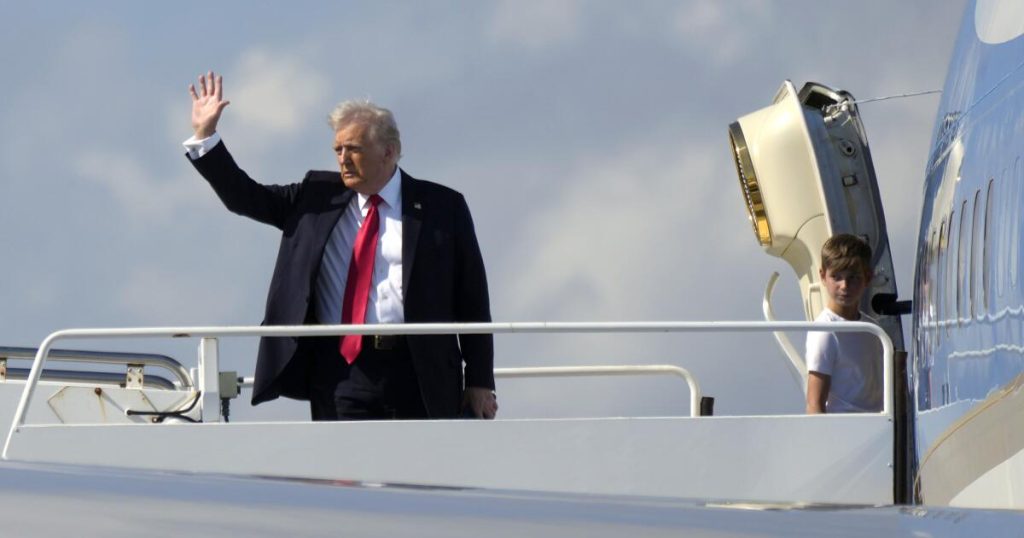President Trump made headlines recently with a significant announcement regarding trade policy, revealing plans to impose tariffs on imported steel and aluminum. In a discussion with reporters aboard Air Force One, Trump stated that a 25% tariff would be applied to all steel imports and similarly to aluminum. This decision, set to be officially announced on Monday, part of a broader strategy to address trade imbalances and protect domestic industries. The tariffs target imports from all countries, including key allies such as Canada and Mexico, signaling a shift in the administration’s approach to international trade. Trump also hinted at additional reciprocal tariffs, aiming to counter duties imposed by other nations on U.S. goods, suggesting a more assertive stance in trade negotiations.
The announcement immediately impacted financial markets, with shares of U.S. steel companies experiencing a sharp rise in pre-market trading. Cleveland-Cliffs, U.S. Steel, Nucor, and Steel Dynamics all saw significant gains, reflecting investor confidence in the potential boost to the domestic steel industry. This move diverges from Trump’s earlier focus on tax cuts and deregulation, marking a pivot towards protectionist policies. Trump has consistently framed tariffs as both a tool for negotiating trade concessions, particularly on issues like immigration, and a means to generate revenue to reduce the federal budget deficit. The decision to impose tariffs earlier in his presidency underscores the administration’s evolving priorities.
Trump’s move towards reciprocal tariffs has drawn attention, as he emphasized the need to address disparities in trade practices. For instance, he pointed to cases where other countries impose high duties on U.S. goods while the U.S. does not reciprocate. He referred to a situation where another country charges 130% tariffs on U.S. goods, while the U.S. currently imposes nothing. Trump’s position suggests a commitment to leveling the playing field and ensuring fair trade practices.
The administration’s tariffs have sparked concern among global trading partners, with South Korea particularly affected due to its significant steel exports to the U.S. South Korea’s acting president, Choi Sang-mok, convened an emergency meeting with top officials to assess the impact of the tariffs on the nation’s steel industry. Major South Korean steelmakers, such as POSCO and Hyundai Steel, saw their stock prices decline following the announcement. South Korea exported nearly $4.8 billion worth of steel to the U.S. in the first eleven months of last year, accounting for 14% of its global steel exports. This emphasizes the potential economic ramifications for countries heavily reliant on steel exports to the U.S.
The broader implications of these tariffs extend beyond immediate trade relations, with analysts considering their impact on the global economy and potential escalation into a trade war. The announcement follows earlier tariffs imposed on Chinese goods, highlighting the administration’s multi-front approach to trade policy. Trump also indicated a delay in applying tariffs to small packages, often from fast-fashion retailers like Temu and Shein, pending further customs review. This exemption may mitigate some of the immediate consumer impacts but leaves medium and long-term effects uncertain.
As the tariffs take effect, they are likely to influence consumer sentiment and inflation expectations, as suggested by a recent survey. Americans are bracing for potential price increases in various goods, from raw materials to finished products. While the tariffs aim to bolster domestic industries, critics caution against the risks of retaliatory measures from trading partners and the potential for economic instability. The administration’s approach to trade policy appears to be entering a new phase, balancing protectionism with strategic economic maneuvering. As global markets and trade partners respond to these changes, the path forward for U.S. trade policy remains a critical area of focus for economists, policymakers, and industry leaders alike.









